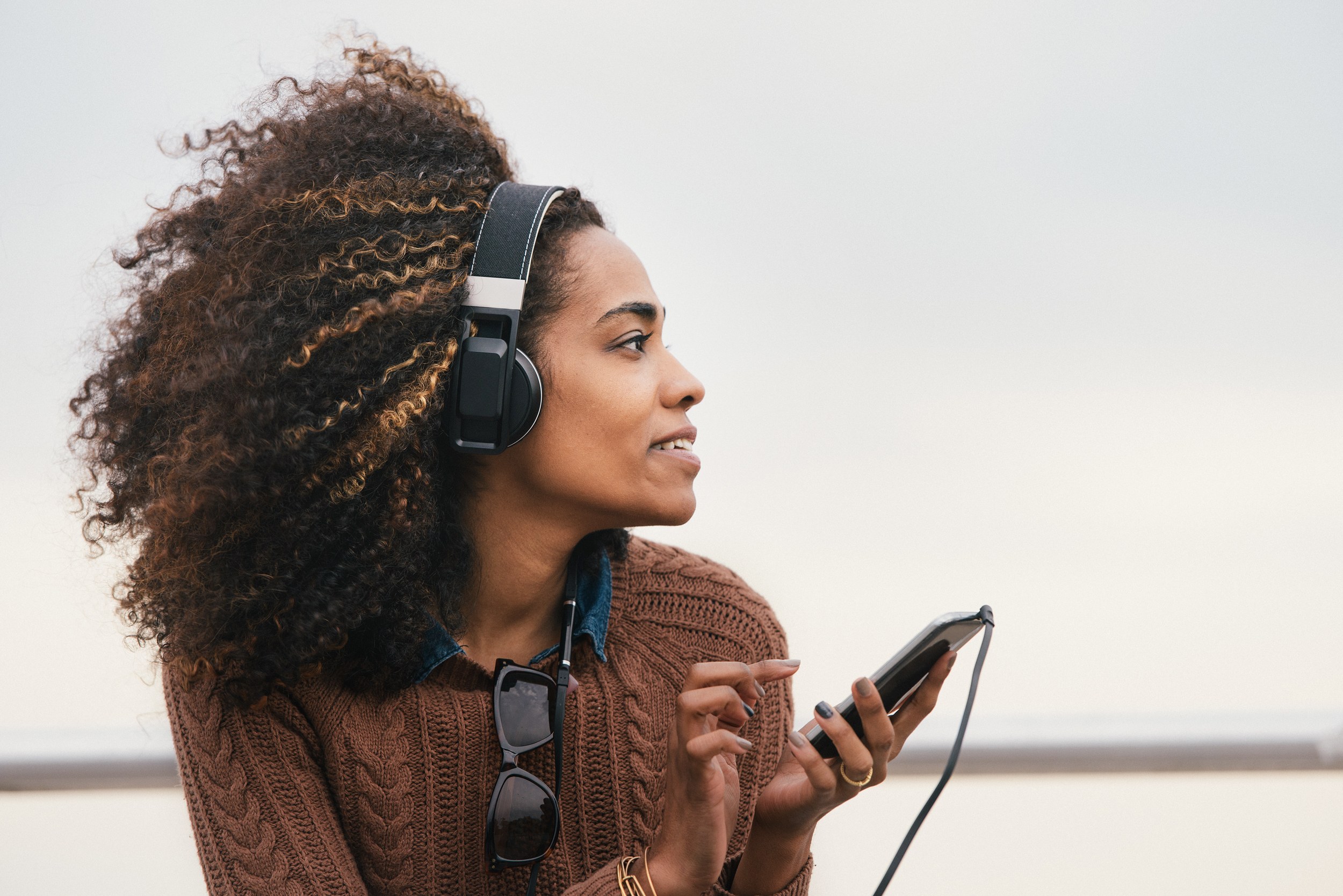Table of Contents
This is How Streaming Platforms Are Taming Music Piracy In Africa !!
Let’s face the facts, African music lovers are known to download their music illegally. But with online streaming platforms such as Spotify and Apple Music now available on the continent, will there be a massive uptake of these services? This could be a game changed and help African artists increase their incomes.
Spotify, the world’s largest music streaming service, launched into over 80 new markets earlier this year. Africa, the Caribbean, Asia, and Latin America were also part of this expansion. This is the platform’s most significant expansion to date, bringing it to more than half of the planet and introducing 36 additional languages to the existing 24.

Image Credits: Getty Images
This appears to be a long-overdue move for Africa. Until now, most African users could only access Spotify via a VPN, except for those in South Africa, where it debuted in 2018, and those in Morocco, Egypt, Algeria, and Tunisia. More Africans can now listen to their favorite songs and podcasts on Spotify thanks to 41 new African nations, including Nigeria, Kenya, Zimbabwe, and Ghana.
Also read: History Of Amapiano Now Topping South Africa’s Music Charts
Following this expansion, the company plans to roll out new features and update its podcast library to accommodate these new markets.
Numbers don’t lie
According to Statista, Spotify had around 144 million paying users as of Q3 2020. It added some new features for emerging markets in 2018, such as a free mobile subscription plan and access to on-demand songs that were previously only available to paying subscribers.
Spotify’s entry into the African market has increased the number of global streaming services and other primary streaming services such as YouTube Music, Apple Music, and Deezer.
With such an impressive number of brands now present in most parts of Africa, it appears that all eyes are on the continent and that music streaming is in high demand. Because of the region’s enviable music talent pool, especially in Nigeria and South Africa, the future looks bright.
Obstacles
However, the current reality is that all of these streaming sites have to contend with a limited portion of the population who can subscribe to services. Despite a large number of cell phone users in Africa, Internet penetration remains low.
Also read: American Star Dave Chappelle Comedian Relocating Permanently To Ghana
The fact that only 29% of people in the country have internet access is one of the biggest obstacles for streaming services. The most critical problem is getting people to go online so that they can listen to music.
Expensive data connections
Unfortunately, getting your hands on a decent internet connection is often costly. African internet providers charge an average of $3.30 per gigabyte, according to a report by British telecommunications company CableUK.
This is terrible news to the streaming services because whilst there is so much potential to increase subscribers in Africa, most of the population is often priced. Spending money on a streaming subscription and a stable internet connection is not high on the priority list.
This is why most streaming platforms concentrated their efforts in countries with favourable economic conditions and lower data tariffs. This is why Spotify, YouTube, and Deezer’s core markets include Ghana, Kenya, Nigeria, Tanzania, and Uganda.
Piracy
Unfortunately, African musicians face some of the world’s worst piracy problems. According to the International Federation of the Phonographic Industry (IFPI), legal audio content accounts for less than 10% of the music market in most African countries. The issue is widespread due to weak intellectual property rights and a lack of implementation of existing laws. High piracy and inadequate licensing are symptoms of the problem. The lack of copyright compliance, which is exacerbated by ineffective civil and criminal legal systems, robs artists of a viable income, so the vast majority of artists live in poverty.
Due to Songs being Illegally downloaded or sold on pirated CDs, many artists have lost potential revenue. Africa only earned €72 million in license and used payments in 2018, accounting for less than 1% of global sales. The digital music industry, on the other hand, saw a 36% increase in revenue between 2014 and 2018.
Possible Solutions
Fortunately, with technology and common sense, music streaming services manage to increase their subscriber base. Spotify, for instance, has provided the African market with a lighter version. The African version allows users to stream music at low bandwidths. This enables users to listen to music while using the least amount of data possible. Other local streaming services such as Mdundo relies heavily on downloads, which use far less data than streaming.
Commercialising Adverts
Since the vast majority of the African market is unlikely to pay for a music streaming subscription, the big companies have come up with ways around this. By partnering with brands that advertise on their platform, the music is inadvertently paid for.
Also read: 16 Popular Foods During Ramadan In Africa
Advertisements flighted before each song plays contribute to the funding of this project. This has seen several artists giving their content to streaming providers. African artists can then earn more money from the streaming service providers.
Conclusion
The big positive out of this is that the artists’ songs are legally streamed or downloaded. This helps curb the culture of piracy. The silver lining in all this is that the youth have taken up content lawfully distributed, and since they make up the vast majority of the population, the future is bright. The big surge in demand in streaming services might not happen all in one jump, but the marginal yearly increases are being felt, and this will help strengthen the African music industry as a whole in the long run.








